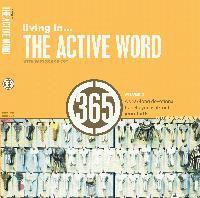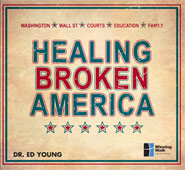As one who has a great deal of respect for godly laymen and laywomen, I'm always glad when one rises in church to deliver a sermon or a testimony or a report. And since I'm in a different church almost every Sunday, I get to see a good bit of this. And sometimes...
Sometimes I want to applaud them. "Good job. Well done." (In fact, I often say it to them following the service.)
But at other times, I want to shake them. "Pay attention to what you are doing! You can do better than this!"
I say this fully aware that we all had to start out somewhere, sometime, someway, and no beginner came to the speaking craft full-grown. We crawl before we walk and do that before we run.
However--and this is what prompts this diatribe today--what gets my goat is when the lay speaker or preacher is mature in years and should know better and still makes glaring mistakes.
Here is my list of ten things the beginning (or rusty or occasional) speaker seems not to know, but needs to learn quickly in order to be effective.
1. How to begin a speech, report, lesson, testimony, or sermon.
First, how not to begin:
"When they asked me to give my testimony this morning, my first thought was...."
"I don't know why they asked me to do this, but...."
"When I told my wife the preacher had asked me to speak today, she said...."
Don't do that.
No one wants to hear how you came to this event. It's important to you, but it has absolutely nothing to do with your assignment.
Your audience wants to hear what you have to say. So, cull all that clutter and go straight to the point.
Walk to the podium, smile at the congregation, take a deep breath, and begin: "One of the most important events in my life came on a Thursday some ten years ago...."
2. How to Measure Time.
The uninitiated speaker who has been handed the pulpit and told to take 5 to 10 minutes is lost. He/she has no concept of time. None. They will think they have taken 2 minutes when they actually took 15.
I still remember with some pain a lay speaker who was representing a ministry of considerable importance in our state, and who was assigned 10 minutes for a report to one of our convocations. He walked to the pulpit, told his audience of several hundred that he had been given that amount of time, and made some general remarks which were intended--I would assume--to connect him with the hearers and to relax him. The problem is those remarks took all of his time. Every minute of the ten.
To make matters worse, when he finally launched into his report, he took 10 minutes for the introductory portion. When he had gone 20 minutes, he paused to take a breath and said to us, "In the few minutes I have remaining, I'd like to...."
This happens more often than you might think. Simply stated, a beginning speaker has a hundred things on his mind, a dozen conflicting emotions coursing through his being, and they all block out any awareness of how long he has stood there.
There is no substitute for preparation. (We'll get to that at the end.)
3. How to pick and choose a few Scriptures.
The novice stands in front of us and makes a point that is biblical and sound. Then, to back it up, he proceeds to read to us every scripture he can find on the subject. And with some subjects, that's a truckload!
We would like the lay speaker/preacher to know: it's okay to leave out some of what the Bible has to say on your subject. If you expect people to appreciate the ones you quote and to remember them, one or two on each point will be sufficient.
4. How to tell a story without a thousand irrelevant details.
A good story will have some details, but will not be overstuffed with them. If the speaker takes all day to get to the point, his hearers will have forgotten his point, will be tired of listening, will be ready to move along, and will be more than a little impatient with him.












